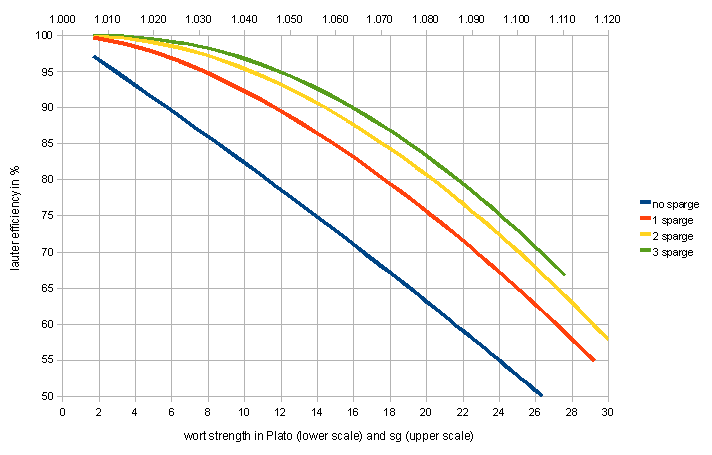Grimsawyer
Well-Known Member
Ok, so I was reading THIS thread and thought wow! Over 70% brewhouse efficency without batch sparging or fly sparging? Just mix all of your preboil water together between the boil kettle and the MLT(plus add in what the grain soaks up)... Yeah right. Even after jkarp posted this, "I've NEVER dropped below 70%, and grist seems to have a bigger impact than gravity. I got mid seventies on the last barleywine I did, but 72% on my last wheat. I'm actually doing a raspberry wheat this weekend so it'll be interesting to see how it does." I was skeptical. Today I brewed a Cute Little Hunny Bunny Ale (16lbs 2row, 4lbs flaked corn, 1lb carafoam, 1oz Cascade 8.4 60min 2112 california lager) and got 73% BREWHOUSE EFFICENCY!!! 1.049!!! (post boil volume was 11 gallons, my gear soaks up a quart.) I couldn't believe it. To get that when batch sparging or fly sparging I have to collect 3ish gallons too much on a 5.5 gallon batch on my equpment and boil for 2-2.5 hours to get 79%. If I collect just enough to hit my target volume after the boil I sometimes get between 68% and 71% efficency. PLUS my brew day was about an hour shorter. Does anyone else use this meathod to brew? It's pretty sad that when I mix all the water together that's meant to be in the brew I get a better efficency than when I use fancy sparge techniques... HAHAHAHA!!!  Thank you for the inspiration jkarp. I not so sure I would have tried it had you not posted your thread.
Thank you for the inspiration jkarp. I not so sure I would have tried it had you not posted your thread.
 Thank you for the inspiration jkarp. I not so sure I would have tried it had you not posted your thread.
Thank you for the inspiration jkarp. I not so sure I would have tried it had you not posted your thread.


